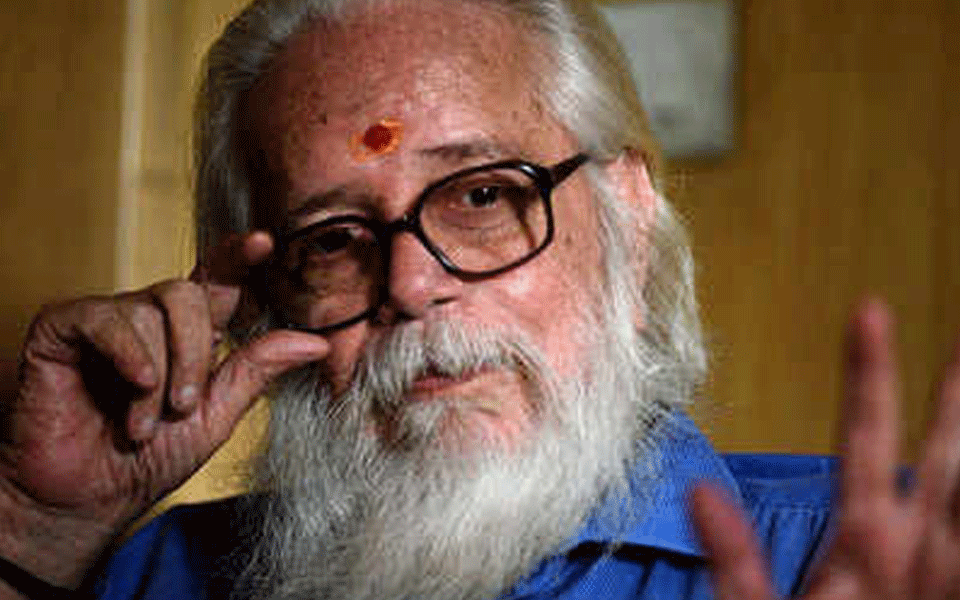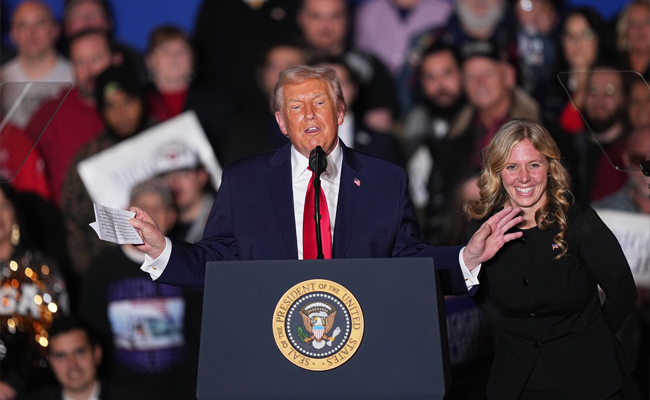Thiruvananthapuram, Sep 14 : Hours after the Supreme Court on Friday awarded him Rs 50 lakh compensation for the sufferings and ignominy he underwent after being arrested in an espionage case, former ISRO scientist S. Nambi Narayanan said the fight was finally over for him.
"I am happy that a (three-member) committee, and not a commission, has been formed to conduct an inquiry. Till now, it was a fight, but it's over now. I want to live for myself now. Enough is enough," he said.
Narayanan had moved the apex court for a probe into the false case foisted on him by Kerala Police and other agencies.
He had challenged a Kerala High Court judgment that upheld the state's decision not to take action against officials who falsely implicated him in the case, forcing him to stay behind bars for 50 days.
"It was a long-fought case, or rather a judicial war. Let the committee come out with the conspiracy behind the case. With this verdict, police officials should realise that they cannot escape their actions," Narayanan said.
A bench of Chief Justice Dipak Misra, Justice A.M. Khanwilkar and Justice D.Y. Chandrachud awarded him the compensation and directed for setting up of the committee led by former apex court Judge D.K. Jain to inquire into the role of officials for implicating him in the Indian Space Research Organisation (ISRO) spy case.
These officials include then Inspector General of Police Siby Mathews and then Deputy Superintendents of Police K.K. Joshua and S. Vijayan.
The former ISRO scientist said he hoped that the committee will finish its job in three to six months.
He said that Rs 50 lakh will be paid by the state government and it's up to the state to decide if the money needs be recovered from the erring police officials.
The ISRO spy case surfaced in 1994 when Narayanan was arrested on charge of espionage along with another top ISRO official, two Maldivian women and a businessman.
After the CBI cleared him in 1995, he fought a legal battle against Mathews and other officials who probed the case.
Let the Truth be known. If you read VB and like VB, please be a VB Supporter and Help us deliver the Truth to one and all.
Itanagar (PTI): Eleven more bodies were retrieved on Saturday from the deep gorge in Arunachal Pradesh's Anjaw district, where a mini-truck on which 22 labourers from Assam were travelling fell, an official said.
With this, 17 bodies have been recovered from the accident site, Anjaw's deputy commissioner Milo Kojin said.
He said three more bodies will be brought out on Sunday.
The operation, being conducted by a joint team of the NDRF and Army, resumed at 6 am.
ALSO READ: Traffic fraud: Fake 'no-entry' sticker racket busted in Delhi, mastermind among 3 held
"The retrieval process was extremely difficult because of the treacherous terrain, and the gorge is very deep," Kojin said.
The operation was suspended around 4 pm due to low visibility and will be resumed on Sunday morning, he said.
"One person is still missing, and a search operation will be carried out tomorrow," he added.
The accident happened on the evening of December 8, around 40 km from Hayuliang towards Chaglagam in the district. On the evening of December 10, one survivor managed to climb out of the gorge and reach a nearby Border Roads Task Force (BRTF) labour camp, following which the authorities were alerted.
Six bodies were recovered from the gorge on Friday and handed over to their families on Saturday.





